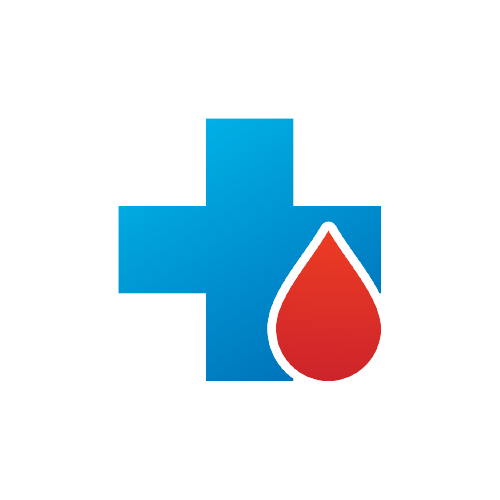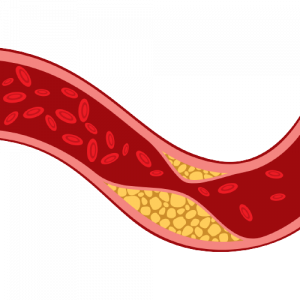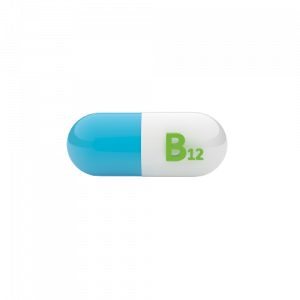Male Basic Wellness Blood Panel
$169.00
The Male Basic Wellness Blood Panel is a set of blood tests that are designed to assess a man’s overall health and wellbeing. These tests typically include a variety of tests that evaluate various aspects of a man’s health, including blood sugar, cholesterol, liver and kidney function, hormonal levels, and more.
Analytes in this test: 48 analytes:- Comprehensive Metabolic Panel, CMP (19 analytes), Lipid Panel (6 analytes), Complete Blood Count, CBC (21 analytes), HbA1C (1 analyte), Testosterone (1 analyte).
Description
About the Test
The Male Basic Wellness Blood Panel is a set of blood tests that are designed to assess a man’s overall health and wellbeing. These tests typically include a variety of tests that evaluate various aspects of a man’s health, including blood sugar, cholesterol, liver and kidney function, hormonal levels, and more.
The Male Basic Wellness Blood Panel can be helpful for detecting and managing a variety of medical conditions, such as thyroid disorders, diabetes, and hormonal imbalances. The results of the blood test can help healthcare providers make a diagnosis and develop a treatment plan if necessary.
It’s important to discuss the results of the Male Basic Wellness Blood Panel with a healthcare provider, who can provide the necessary context and recommend appropriate follow-up if needed.
Overview Of The Male Basic Wellness Blood Test
The Male Basic Wellness Blood Test is a set of blood tests that are designed to assess a man’s overall health and wellbeing. These tests typically include a variety of tests that evaluate various aspects of a man’s health, including blood sugar, cholesterol, liver and kidney function, hormonal levels, and more.
Specific tests included in a comprehensive men’s wellness blood test can vary depending on the healthcare provider or lab that administers the test, but some common tests that may be included are:
- Complete blood count (CBC)
- Comprehensive metabolic panel (CMP)
- Lipid panel
- Prostate-specific antigen (PSA)
- Testosterone level
- Thyroid function tests (TSH, free T4)
- Vitamin D level
The Male Basic Wellness Blood Test can be helpful for detecting and managing a variety of medical conditions, such as thyroid disorders, diabetes, and hormonal imbalances. The results of the blood test can help healthcare providers make a diagnosis and develop a treatment plan if necessary.
It’s important to discuss the results of a comprehensive men’s wellness blood test with a healthcare provider, who can provide the necessary context and recommend appropriate follow-up if needed.
Analytes Tested
26 Analytes
- Albumin
- Albumin/Globulin Ratio (calc)
- Alkaline Phosphatase (ALP)
- ALT (Alanine Aminotransferase)
- AST (Aspartate Aminotransferase)
- Bilirubin Total
- Bilirubin Direct
- Blood Urea Nitrogen (BUN)
- Calcium
- Carbon Dioxide
- Chloride
- Creatinine
- EGFR (calc)
- Iron
- Glucose
- Protein, Total
- Potassium
- Sodium
- Complete Blood Count (CBC)
- Total Cholesterol
- LDL Cholesterol
- HDL Cholesterol
- VLDL
- Triglycerides
- HBA1C
- Testosterone
Comprehensive Metabolic Panel (CMP)
A comprehensive metabolic panel (CMP) is a blood test that measures a variety of substances in the blood, including electrolytes, glucose, proteins, and liver and kidney function tests. The CMP is commonly used to evaluate overall health and to screen for a variety of medical conditions, such as diabetes, liver disease, and kidney disease.
The CMP typically includes the following tests:
- Albumin
- Albumin/Globulin Ratio (calc)
- Alkaline Phosphatase (ALP)
- ALT (Alanine Aminotransferase)
- AST (Aspartate Aminotransferase)
- Bilirubin Total
- Bilirubin Direct
- Blood Urea Nitrogen (BUN)
- Calcium
- Carbon Dioxide
- Chloride
- Creatinine
- EGFR (calc)
- Iron
- Glucose
- Protein, Total
- Potassium
- Sodium
The results of a CMP can help healthcare providers diagnose and monitor a variety of medical conditions, such as diabetes, liver disease, and kidney disease. Abnormal levels in any of the CMP tests may indicate an underlying medical condition, and additional tests or evaluation may be needed to determine the cause and appropriate treatment.
It’s important to discuss the results of a CMP with a healthcare provider, who can provide the necessary context and recommend appropriate follow-up if needed.
Complete Blood Count (CBC)
A complete blood count (CBC) is a blood test that measures the different cells in the blood, including red blood cells, white blood cells, and platelets. The CBC provides important information about a person’s overall health and can help diagnose a variety of medical conditions, including anemia, infections, and blood disorders.
The following components of the blood are measured during a CBC:
- Red blood cells (RBCs) – measure the number and size of red blood cells, which carry oxygen to the body’s tissues.
- Hemoglobin – measures the amount of oxygen-carrying protein in the blood.
- Hematocrit – measures the proportion of red blood cells to the total volume of blood.
- Mean corpuscular volume (MCV) – measures the average size of red blood cells.
- Mean corpuscular hemoglobin (MCH) – measures the average amount of hemoglobin in red blood cells.
- Mean corpuscular hemoglobin concentration (MCHC) – measures the average concentration of hemoglobin in red blood cells.
- Red Blood Cell Distribution Width (RDW) is a blood test that measures the variation in size and shape of red blood cells.
- Red Blood Cell Distribution Width-Standard Deviation (RDW-SD) is a blood test that measures the variation in size and shape of red blood cells, with a focus on the degree of variation in width.
- Mean Platelet Volume (MPV) is a blood test that measures the average size of platelets in the blood.
- Platelets – measure the number of small cells that help blood to clot.
- White blood cells (WBCs) – measure the number of different types of white blood cells, which play a role in fighting infections.
- Lymphocytes % is a blood test that measures the percentage of lymphocytes, a type of white blood cell, in the blood.
- Monocytes % is a blood test that measures the percentage of monocytes, a type of white blood cell, in the blood.
- Neutrophils % is a blood test that measures the percentage of neutrophils, a type of white blood cell, in the blood.
- Eosinophils % is a blood test that measures the percentage of eosinophils, a type of white blood cell, in the blood. Eosinophils play a key role in the immune system’s response to parasitic infections and allergic reactions.
- Basophils % is a blood test that measures the percentage of basophils, a type of white blood cell, in the blood. Basophils play a role in the immune system’s response to allergies and parasitic infections.
- Lymphocytes # is a blood test that measures the absolute number of lymphocytes, a type of white blood cell, in the blood.
- Monocytes # is a blood test that measures the absolute number of monocytes, a type of white blood cell, in the blood.
- Neutrophils # is a blood test that measures the absolute number of neutrophils, a type of white blood cell, in the blood.
- Eosinophils # is a blood test that measures the absolute number of eosinophils, a type of white blood cell, in the blood.
- Basophils # is a blood test that measures the absolute number of basophils, a type of white blood cell, in the blood.
A healthcare provider can interpret the results of a CBC and make recommendations for treatment or lifestyle changes as needed. The normal range for the results of a CBC may vary depending on the laboratory that performs the test. It is important to keep in mind that the results of a CBC can be influenced by factors such as age, gender, and overall health.
Cholesterol Test or Lipid Panel
The lipid panel, also known as a cholesterol test or lipid profile, is a blood test that measures the levels of different types of fats (lipids) in the blood. These include:
- Total cholesterol: This is the overall amount of cholesterol in the blood.
- LDL cholesterol: This is the “bad” cholesterol that contributes to the build-up of plaque in the arteries, increasing the risk of heart disease.
- HDL cholesterol: This is the “good” cholesterol that helps remove plaque from the arteries and reduce the risk of heart disease.
- Triglycerides: These are a type of fat in the blood that can increase the risk of heart disease if levels are high.
The lipid panel is usually performed as part of a routine health screening, or to monitor people who are at risk of developing heart disease. The results of the lipid panel, along with other factors such as age, family history, and lifestyle, can help healthcare providers determine a person’s risk of developing heart disease and make recommendations for treatment or lifestyle changes.
Normal cholesterol levels vary, but total cholesterol levels should be less than 200 mg/dL, LDL cholesterol levels should be less than 130 mg/dL, HDL cholesterol levels should be 40 mg/dL or higher, and triglyceride levels should be less than 150 mg/dL.
HbA1C Blood Test
HbA1c (Glycated hemoglobin) is a blood test that measures the average blood sugar level over the past two to three months. The test provides a more long-term view of a person’s blood sugar control than a simple blood glucose test, which only measures the blood sugar level at a single point in time.
HbA1c is formed when glucose in the blood binds to hemoglobin, a protein in red blood cells that carries oxygen throughout the body. The higher a person’s blood sugar level over time, the more glucose is bound to hemoglobin, and the higher the HbA1c level will be.
A HbA1c test is used to monitor diabetes control and to diagnose diabetes. The test is typically done two to four times a year for people with diabetes. Normal HbA1c levels for people without diabetes are typically below 5.7%, while levels for people with diabetes are typically higher, between 7% and 8%. A healthcare provider can use the results of a HbA1c test to adjust treatment and make recommendations for lifestyle changes as needed.
Testosterone
Testosterone is a male sex hormone that is produced by the testicles in men and in smaller amounts by the ovaries in women. It plays a key role in male sexual development, including the growth of the penis and testicles, the deepening of the voice, and the growth of facial and body hair. Testosterone also helps regulate bone density, muscle mass and strength, and red blood cell production. In addition, it is important for maintaining a healthy libido and overall well-being. Low testosterone levels can lead to decreased sexual function, decreased muscle mass, decreased bone density, and increased body fat. A blood test can be used to measure testosterone levels, and testosterone replacement therapy may be recommended for individuals with low testosterone levels.
Testosterone is made by:
- The testicles (or testes), the part of the male reproductive system that makes sperm
- The ovaries, the part of the female reproductive system that makes eggs
- The adrenal glands, organs on top of each kidney that make several hormones
During male puberty, testosterone causes body hair, muscle growth, and a deepening voice. In adult life, it controls sex drive, maintains muscle mass, and helps make sperm. In females, testosterone is important for the growth of bones and muscles, and healthy organs.
Specimen Requirements
- SST tube of blood, serum
- Lavender top – EDTA, whole blood
Turn Around Time
24 – 48 hours
Price For Test
Price: $169






